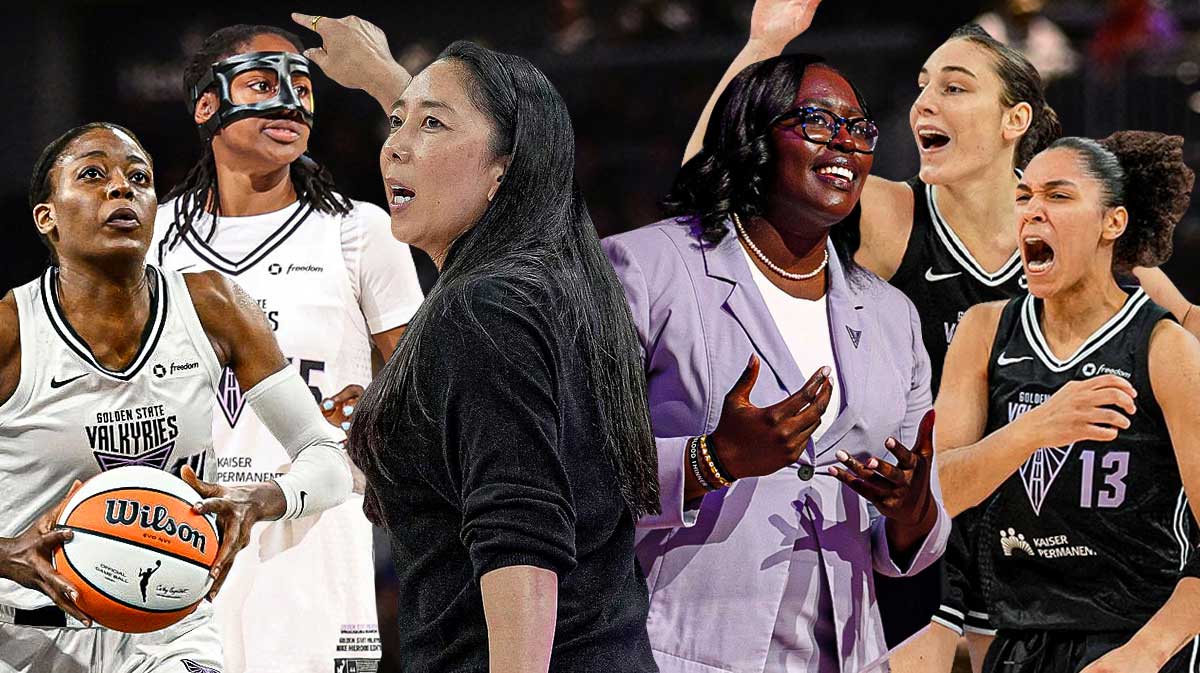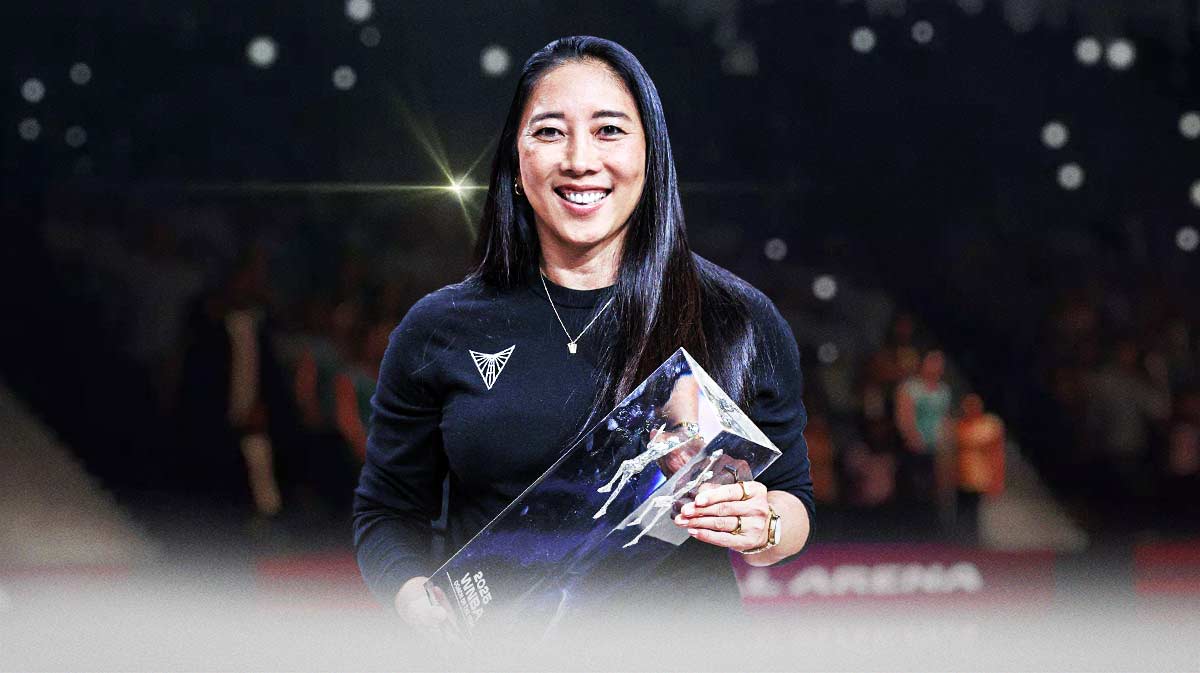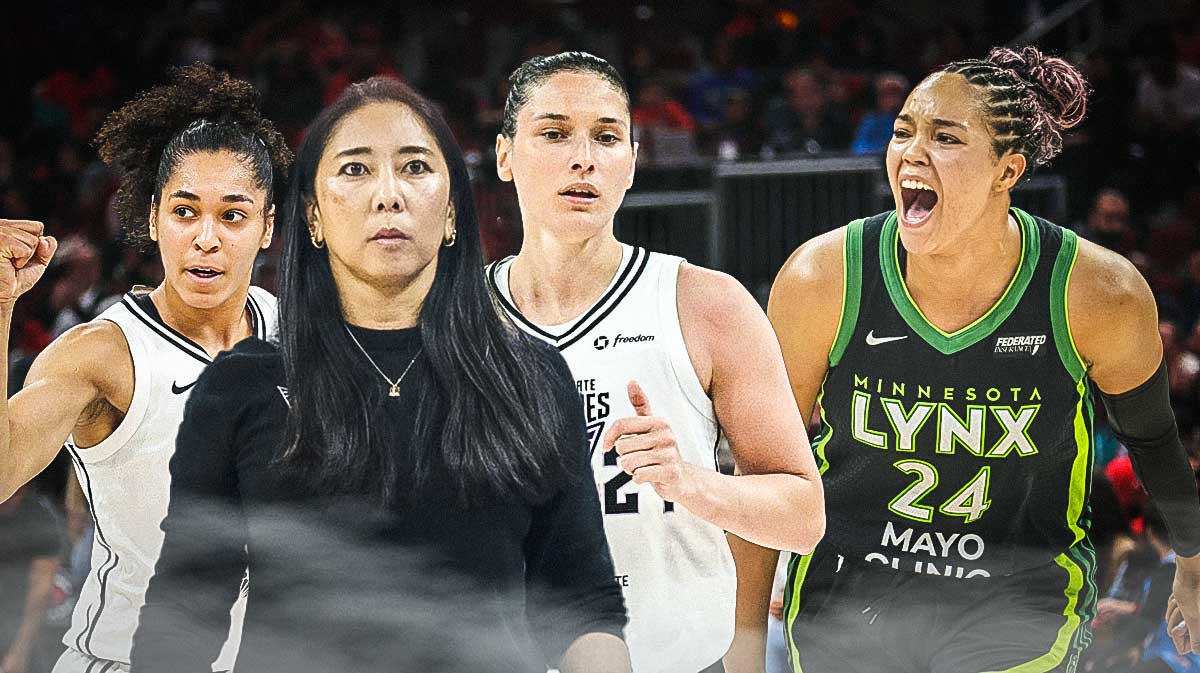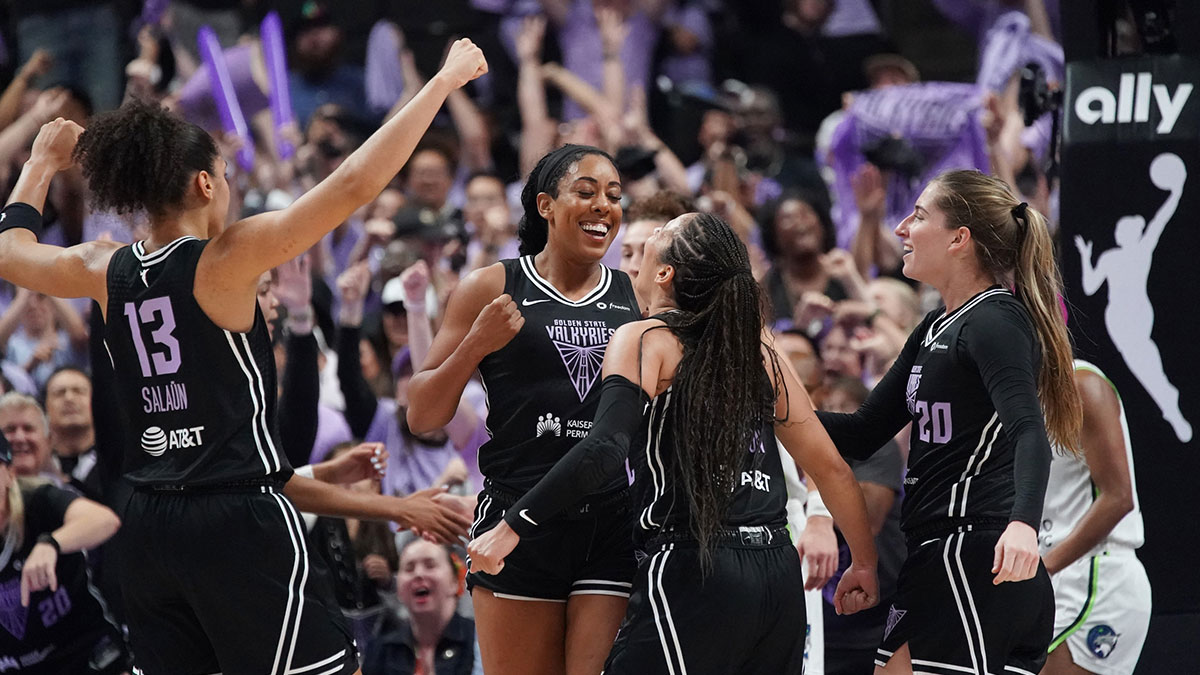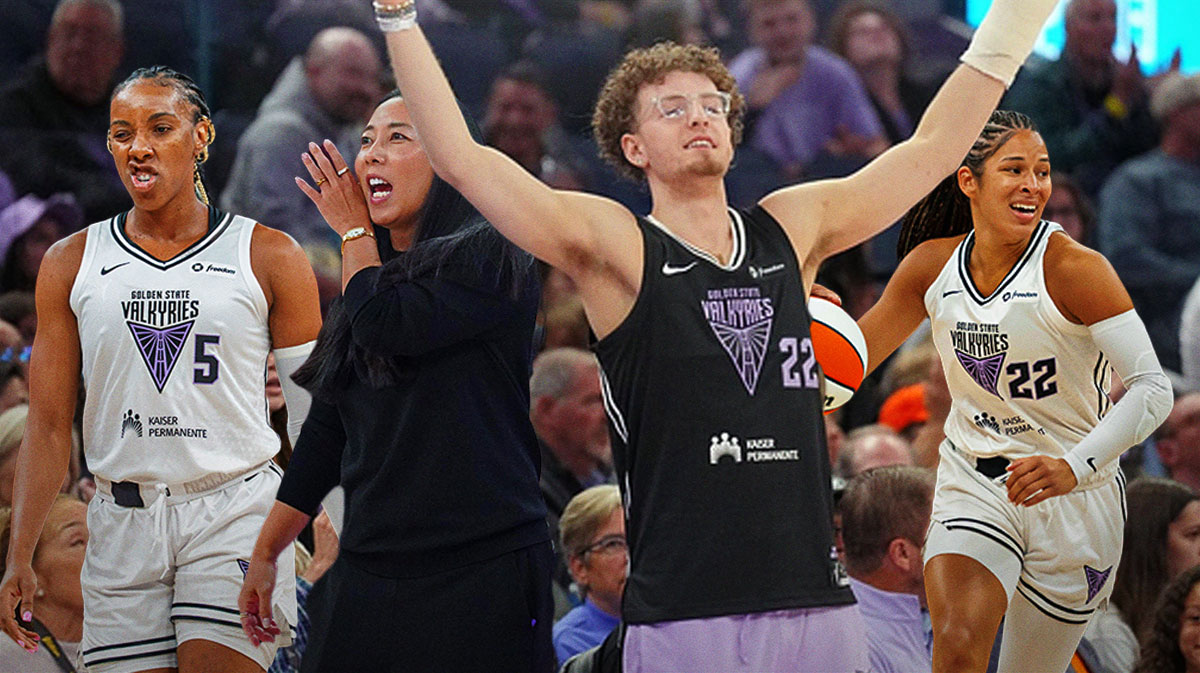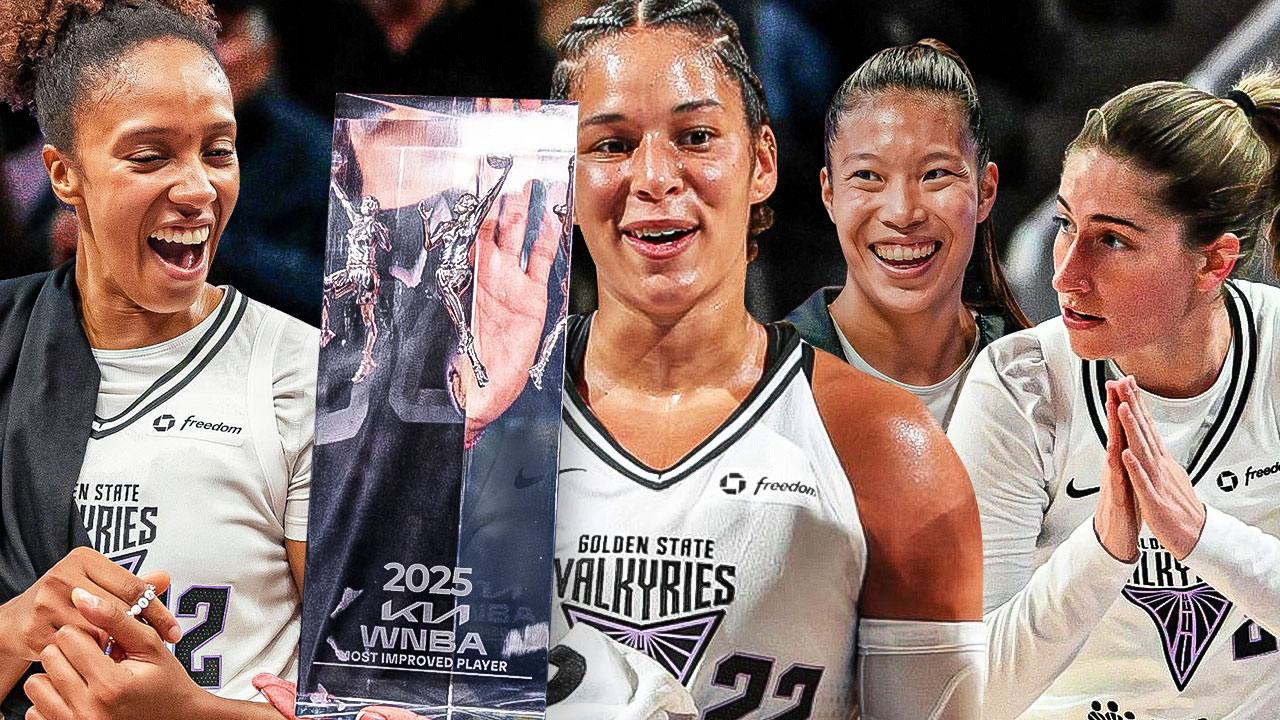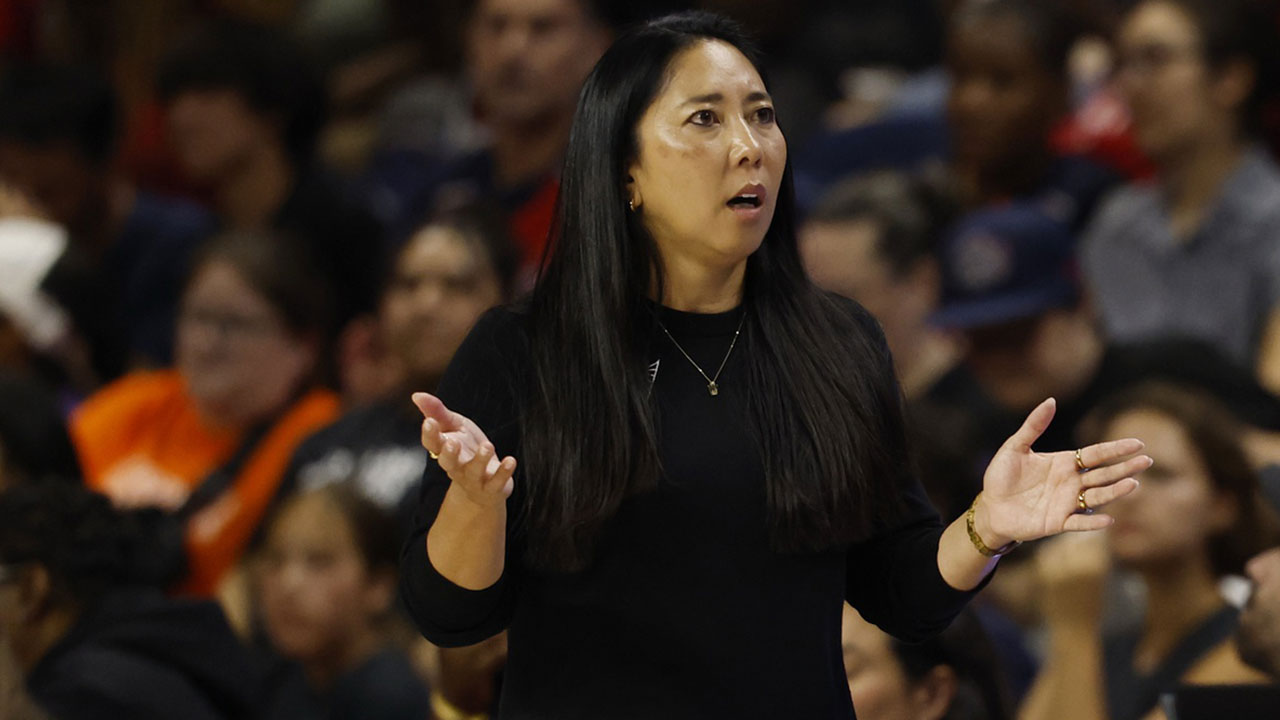The Golden State Valkyries have shattered all expectations just 10 games into the season. What began as a feel-good story about a brand-new WNBA franchise bringing women's basketball to the Bay Area has quickly become something much more than that. As cool as it is that the Valkyries are continuing to sell out the maximum 18,064 seats available at Chase Center, Golden State is bringing the fans competitive, entertaining, and, most importantly, winning basketball to the burgeoning fan base.
And it's something no one other than the Valkyries saw coming.
After Golden State's upset win 76-70 over the Seattle Storm, Temi Fagbenle described the formula for the Valkyries' early-season success that was right in front of us the entire time.
“We're a team of Sixth-Women,” Fagbenle said. The starting center was answering a question asking how the team can step up in the absence of the players who departed for EuroBasket. But that one sentence simultaneously spoke to why so many people expected the Valkyries to struggle and why they're one of the deepest teams in the W.
“We’ve come from different teams around the league,” she continued. “We know what it takes to be great teammates, and we know what it takes to step up and do what we need to do for the team to succeed. Whoever leaves, it's going to be fine. Someone's going to step up, and we're going to do it together. That's really the strength of our team, I think.”
While the Valkyries do not have the prototypical heliocentric force of nature attribute players like A'Ja Wilson or Napheesa Collier bring to a team, they also don't have a weak link.
A “commonality” makes for cohesion

The simple reason why the Valkyries have so many “Sixth-Women” type of players is because of the expansion draft. In Golden State's solo expansion draft, the other 12 WNBA teams could protect up to six players on their roster, with the rest being made available in the Valkyries draft pool. With each team presumably protecting what they believed were their six best players, the Valkyries essentially only got players who were considered fringe starters at best.
But as Fagbenle stated, the job of Sixth-Women-esque players is to do the things that don't show up in the statsheet. That means being the connector on offense, guarding the best player on defense, diving on the floor, hyping up teammates — all of the dirty work that usually goes unappreciated. And when every player on the team plays like that, it makes for a team with a lot of chemistry and a lot of IQ, which allows them to compete above their perceived skill level.
In the same post-game press conference, coach Natalie Nakase described the Valkyries' collective “Sixth-Women” mentality Fagbenle identified.
“I don't know if the word is right, but a ‘commonality?' Or a ‘similarity?' You know when you have the same thing about whether you were from the same area or you grew up the same? You kind of like to share similar experiences,” Nakase explained.
“So everyone kind of being technically like the ‘Seventh-Woman,' because they could protect the sixth, then they all share that, ‘I possibly could have been a starter on my unit.' Or, ‘I'm right at the cusp of starting.' Or, ‘If I was given 15 more minutes, I wonder what I could do. I think that is what they are sharing right now. And that's what we're giving them… Credit to our players for having that heart.”
The Swiss-Army Knife Valkyries
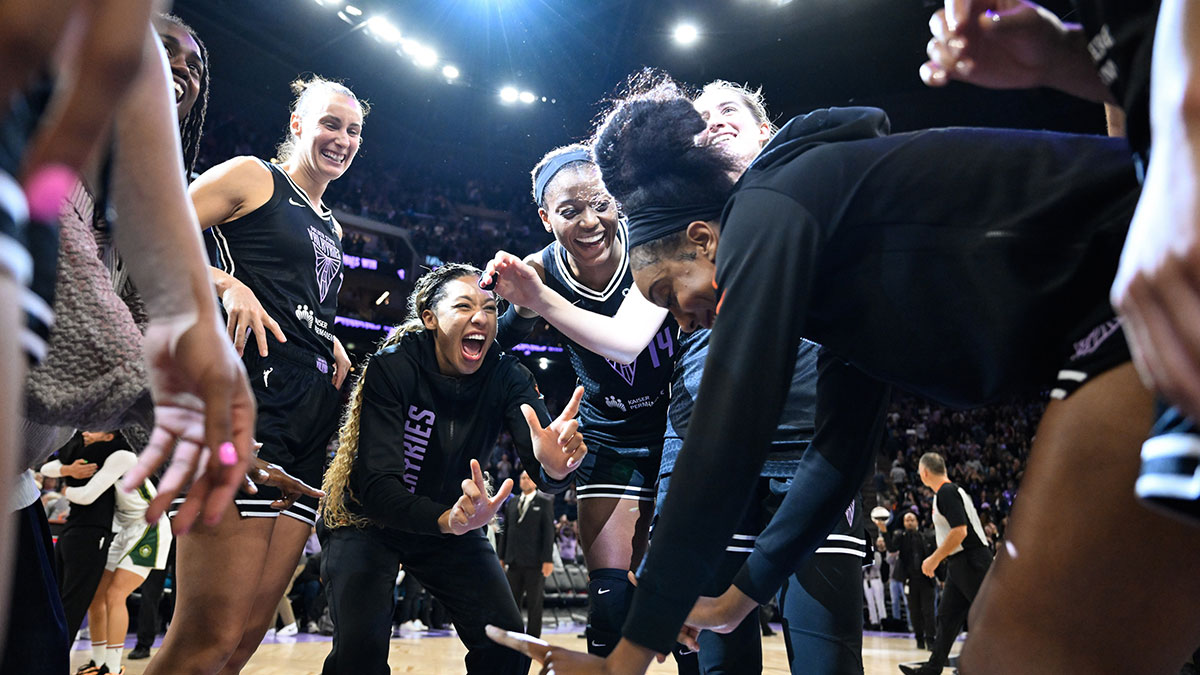
The Valkyries having a bunch of players with similar backgrounds feeds into why they're so adaptable. With so many options available to Nakase, she's able to reconfigure the rotation on a game-to-game basis to match the opponent. Whether she needs her team to play a zone against the oversized Sonics or five-out versus the fast-paced Los Angeles Sparks, the Valkyries can do it.
It's a credit to everyone involved in Golden State thus far. It starts with general manager Ohemaa Nyanin for finding the unprotected players that would fit Nakase's vision. It's Nakase coaching to her players' strengths rather than a specific, rigid system. And it's the players building that chemistry on the court and off the court.
There will be nights when it looks like the Valkyries are one star away from being a powerhouse in the WNBA. But that's a problem for next season. Right now, the Valkyries are a problem for any team this season. They're hard to scout, fatigue is rarely an issue, and they can adapt their game plan to any playstyle. That makes them a tough matchup on any night, and it's why they have a legitimate fighting chance for the eighth seed in the playoffs.










